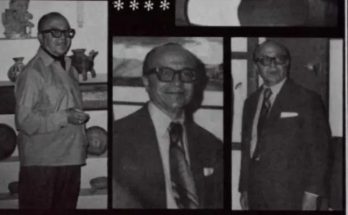By Luis Felipe Rodriguez
Pedro Vargas Mata was a Mexican singer and actor. He was born in San Miguel de Allende on April 29, 1906. Second of the 12 children of José Cruz Vargas and Rita Mata, he began singing in the church choir at the age of 7. The choirmaster was the first to recognize his talent and to give him singing lessons. In 1920, at the age of 14, he arrived in Mexico City and immediately began singing in various church choirs and serenading. He went to the Colegio Francés de La Salle where, after listening to him, they offered him a scholarship to attend secondary school and to study piano and music theory. Vargas stayed there until he finished high school. Later, music teacher José Pierson provided lodging to him and gave him vocal technique lessons for free. While there, Vargas met Jorge Negrete, Alfonso Ortiz Tirado, and Juan Arvizu—all known musicians. José Mojica later recommended him to Alejandro Cuevas who, upon listening to him, also offered to give him free lessons.
Vargas had the opportunity to participate in the opera «Cavalleria Rusticana» on January 22, 1928 at the Esperanza Iris Theater on the recommendation of maestro José Pierson.
But in spite of his operatic preparation, Vargas chose to dedicate himself to singing popular songs. He achieved international recognition for this and became one of the main interpreters of the songs of composer Agustín Lara. He became known by the nicknames «The Nightingale of the Americas,» «The Samurai of Song,» and «The Tenor of the Americas.»
He traveled through the United States performing with popular musician Miguel Lerdo de Tejada and the Typical Orchestra. On his first visit to Buenos Aires, he recorded two songs for the RCA Víctor label that he had written: «Porteñita mía» and «Me fui» with the musical backing of pianist José Agüeros and violinist Elvino Vardaro.
On September 12, 1931, he married María Teresa Campos Jáuregui, originally from Querétaro, and the marriage lasted his entire life. They had four children. He visited many Latin American countries where he sang with great success—Argentina, Chile, Colombia, Peru, and Venezuela. He had an extensive repertoire that included lyrical songs like «Jinetes en el Cielo,» ranchera songs like «Allá en el Rancho Grande,» boleros like «Obsesión» sung for two voices with Beny Moré, and nostalgic songs like «Alfonsina y el mar.»
In 1985 he performed the song «Felicidades» in a duet with the Spanish singer-songwriter Julio Iglesias. Vargas died from complications of diabetes on October 30, 1989, in Mexico City, at the age of 83.




